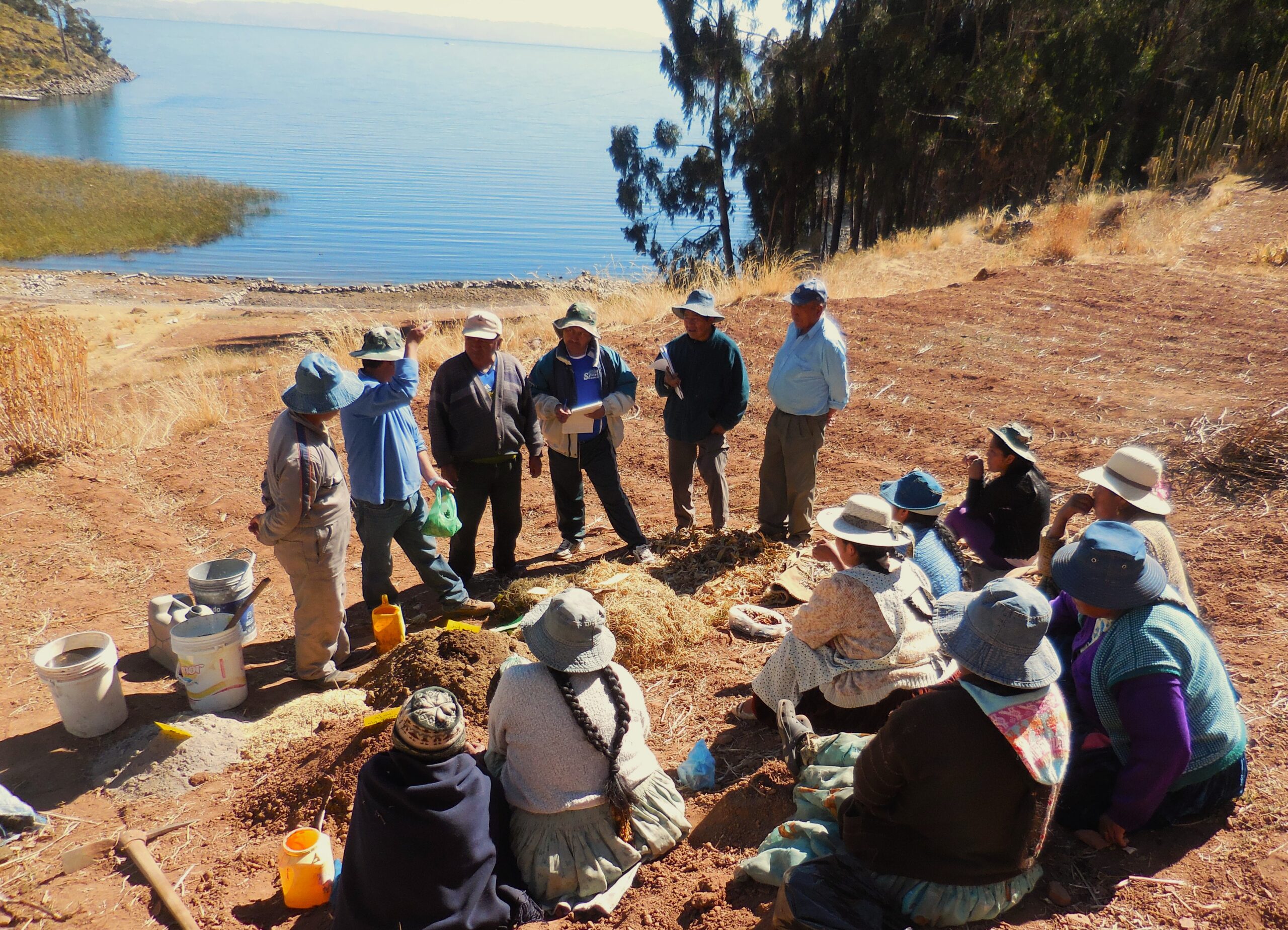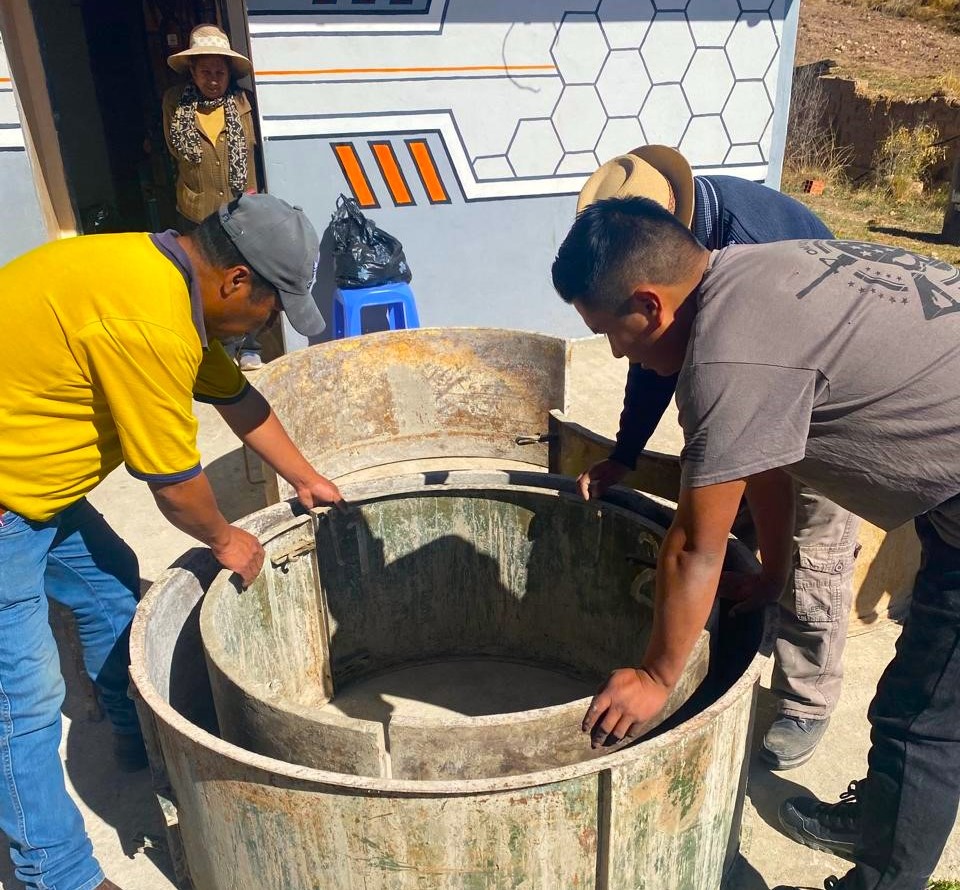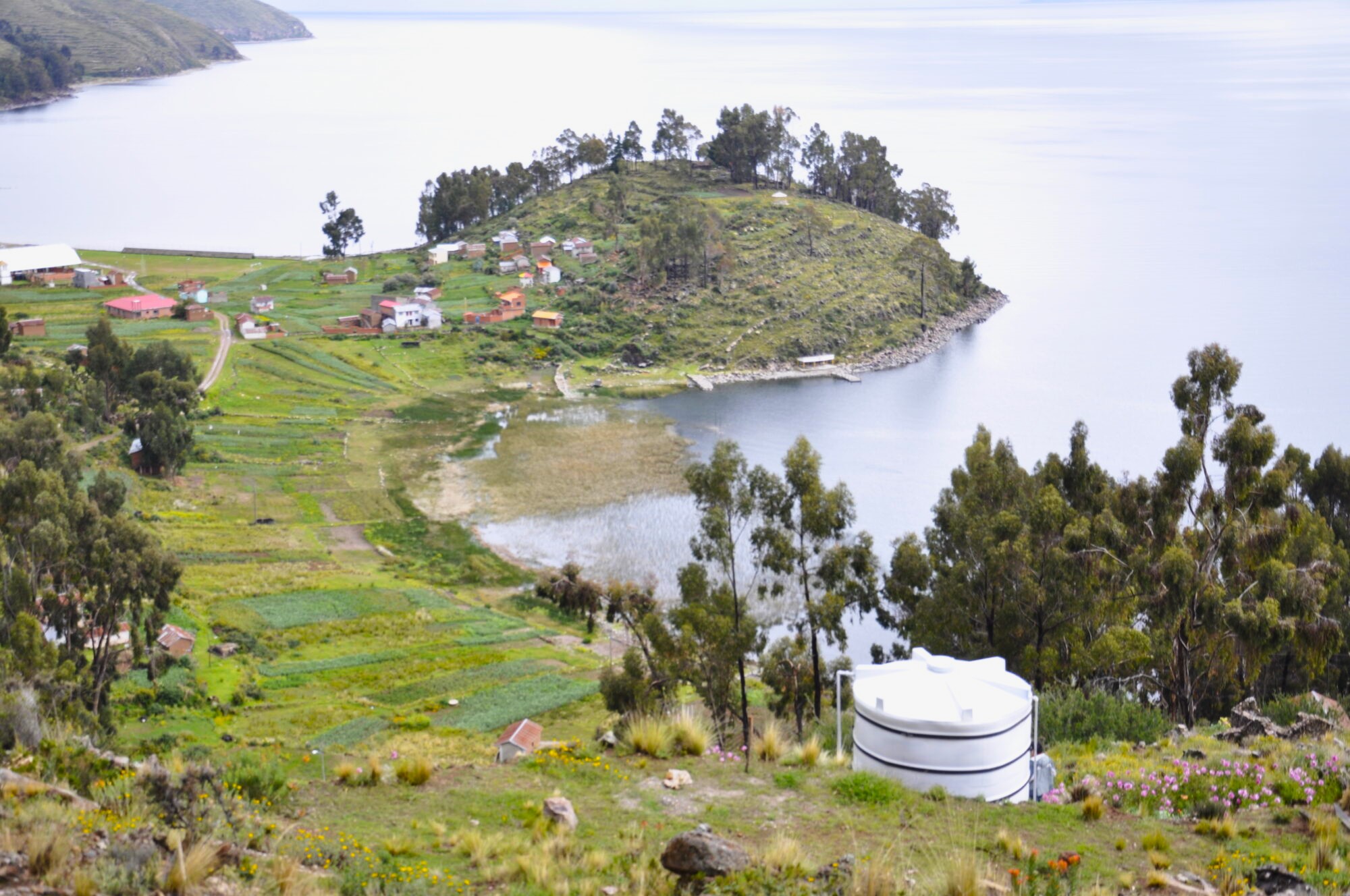In the remote community of Huatapampa, on the shores of Lake Titicaca in Bolivia’s La Paz department, access to safe water for consumption and irrigation has been a persistent challenge. This scarcity has driven many residents, especially young people, to migrate to cities in search of better livelihoods. “The lack of livelihoods and food caused our people, and especially our young people to move to the city. The community of Huatapampa was home to around 360 people (120 families), now only 90 people (30 families) remain here,” shares Liduvina Pucho Ulo, president of Sumaj Qamaña, a farming cooperative in Tito Yupanqui municipality.
Recognising this critical issue, the community, with the support of Practical Action, Green Empowerment, and Christadelphian Meal a Day, took action. The community has fully embraced the advantages of solar energy, which has reduced expenses, allowing funds to be reallocated to other needs. Through the project, new agricultural opportunities are blossoming in Huatapampa, reversing crop losses, soil degradation, and the resulting lower incomes and high migration rates. Using renewable energy, food security has increased, production has diversified, incomes have improved, and people are returning to Huatapampa due to the new opportunities. The community now leads the operation of a solar-powered irrigation system, which increased the productive cycle from June to December and boosted production per square meter during this period.
Initially reaching the Sumaj Qamaña association, comprising 12 families, the system is expanding. Currently, it supports 80% of Huatapampa’s population, enhancing local food security and supporting nearby communities and local markets.

Addressing water scarcity in Huarina
Huarina, a picturesque municipality and a tourist spot due to the beauty of its landscapes, faces similar water challenges despite its proximity to the vast lake. The town relies on rainwater harvesting and small springs from nearby hills, but climate change and drought have severely impacted these sources. This has led to migration, reduced food security, and increased burdens on vulnerable populations, deepening inequality, and poverty.
“Many years ago, our ancestors said these springs were large and vital for the population. However, due to climate change and pollution, this resource is dwindling,” explains Wilson Mamani, Mayor of Huarina municipality.
Practical Action, in close collaboration with the Autonomous Municipal Government of Huarina, is implementing a plan to ensure food security and improve local livelihoods through the installation of a solar-powered irrigation system, aiming to enhance the community’s quality of life.

Expanding solar-powered irrigation systems
As a result of advocacy and inspired by the successes in Huatapampa and Huarina, other municipalities in the Katari Basin, including Tito Yupanqui, Calamarca, San Andrés de Machaca, and Pucarani, are adopting similar solar-powered irrigation systems. These initiatives aim to benefit 280 households (1,400 people, 45% of whom are women) by providing access to safe water and promoting climate change adaptation and mitigation strategies.
The Solar Empowerment for Smallholder Farmers in Bolivia project, funded by EKOenergy ecolabel and Kilburn & Strode’s Innovation for All Foundation and implemented by Practical Action, joins up these municipalities. The project focuses on improving solar-powered irrigation systems, enhancing farmers’ capacities in sustainable agricultural practices, and conserving natural resources for future generations.
By partnering with local authorities and raising awareness about innovative, sustainable strategies, Practical Action is empowering Bolivian farmers with climate-resilient water solutions. This collaboration ensures food security and fosters sustainable development while building consciousness about the climate crisis and how local communities can adapt and contribute to mitigation efforts. Through these efforts, we aim to contribute to tangible, lasting improvements for small farmers in Bolivia.
